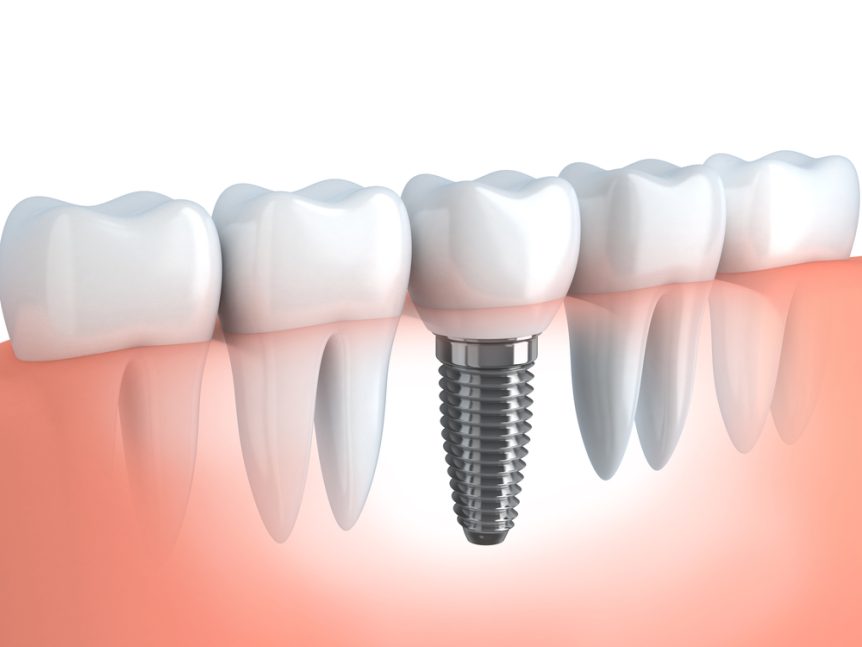Just like natural teeth, dental implants need to be kept clean to prevent them from accumulating bacteria and plaque. Plaque is a sticky film composed of food debris, saliva, and bacteria that can cause gum disease, tooth decay, and other oral health problems if not removed regularly.
Thankfully, there are several tools available that can help you keep your implants clean and free of plaque.
Here are five of the best:
- Regular Toothbrush – A regular toothbrush with soft bristles is perfectly fine for cleaning around your dental implants. Just make sure to brush gently so as not to damage your gums or irritate your sensitive teeth. In addition to brushing your teeth twice a day, experts recommend using a tongue scraper or tongue brush to remove bacteria from your tongue (which can also contribute to bad breath).
- Interdental Brush – An interdental brush is a small brush that looks like a miniature pipe cleaner. These brushes are designed to reach in between teeth and clean out plaque that your regular toothbrush might miss. If you have dental implants, you should use an interdental brush with very soft bristles so as not to damage your gums or irritate your sensitive teeth.
- Water Flosser – A water flosser is an electric device that uses a stream of water to remove plaque from between your teeth. Water flossers are especially beneficial for people with dental implants because they massage the gums and help remove any food particles or debris that might be lodged in hard-to-reach places.
- Mouthwash – In addition to using a regular toothbrush, interdental brush, and water flosser, experts also recommend using mouthwash daily. Mouthwash can help remove plaque from between your teeth and also kill any harmful bacteria that might be lurking in your mouth. Be sure to look for a mouthwash that contains fluoride; this will help Strengthen your enamel and prevent cavities.
- Ask Your Dentist – Of course, the best way to ensure that your dental implants are properly cleaned is to visit your dentist regularly for professional cleanings and checkups. During these appointments, your dentist will thoroughly clean your implants and check for any potential problems, such as gum disease or tooth decay. He or she can also give you customized advice on how to care for your specific type of implant.
By following these simple tips, you can keep your dental implants clean and healthy for years to come! Remember: brushing twice a day, flossing once a day, using an electric toothbrush or water flosser, using mouthwash, and visiting your dentist regularly are all important parts of maintaining good oral hygiene habits—no matter what type of teeth you have!

